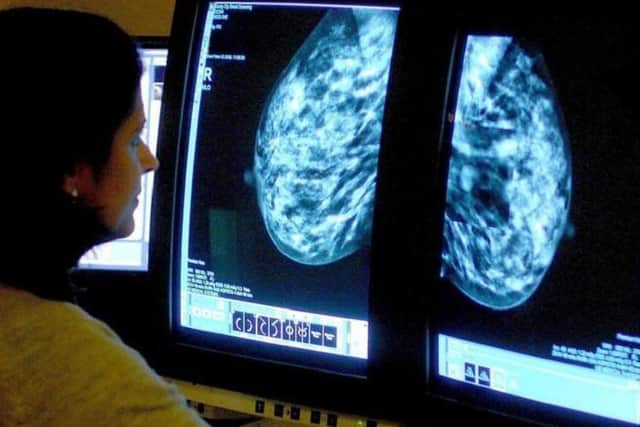Concern at lack of breast cancer care in Wigan
and live on Freeview channel 276
Charity Breast Cancer Now said the “frightening consequence” of vital targets being missed across England was that more women could be living with the disease without knowing.
NHS England data shows 294 patients with suspected breast cancer were referred by GPs for urgent investigations at Wrightington, Wigan and Leigh NHS Foundation Trust (WWL) in December.
Advertisement
Hide AdAdvertisement
Hide AdBut just 267 (91 per cent) were seen by a consultant within the recommended two-week window – the lowest figure for the month since records began in 2009.


It was also below the national NHS target for 93 per cent of all cancer patients to be seen within this timeframe.
WWL pointed out that it was still well above the national average in December 2020, as well as returning to above to the national target in January 2021.
Mary Fleming, Chief Operating Officer of WWL, said: “Throughout the pandemic, Wrightington, Wigan and Leigh NHS Foundation Trust continues to focus on providing cancer services, offering, where possible, a first appointment within 14 days of receiving a referral from your GP.
Advertisement
Hide AdAdvertisement
Hide Ad“The extraordinary collective effort of our teams during this challenging time has allowed us to offer treatment as early as possible for patients with a confirmed cancer diagnosis, as well as providing peace of mind for patients who are suspected to have cancer and subsequently given the all clear through access to diagnostic testing.
“We would urge you to contact your GP if you notice a change that isn’t normal for you. Early cancer detection can lead to better outcomes.”
Across England, the proportion of patients seen within a fortnight fell from 90 per cent in December 2019 to just 71 per cent in December last year – the lowest figure for any month since records began in 2009.
Breast Cancer Now said the latest figures were “deeply worrying” and encouraged women to contact their GP if they find any new or unusual breast changes.
Advertisement
Hide AdAdvertisement
Hide AdBaroness Delyth Morgan, chief executive of the charity, said: “Facing longer waits at an already incredibly difficult time can cause women huge anxiety, and the frightening consequence of these vital targets being missed is that more women could be living with undetected breast cancer due to delayed diagnoses.
“This issue has to be addressed as early diagnosis is key to giving treatment the best chance of success.”
NHS figures show just two-thirds of patients with breast cancer symptoms (when cancer was not initially suspected) were seen within two weeks in December – also a record low.
At the Wrightington, Wigan and Leigh Trust, 148 such patients were referred by GPs in December, with 125 seen within two weeks.
Advertisement
Hide AdAdvertisement
Hide AdAt just 84 per cent, this was down from 96 the same month the previous year.
Baroness Morgan added: “At the end of a gruelling year, and still now, we know the diagnostic and imaging cancer workforce is working tirelessly under immense pressure, having already been chronically under-resourced pre-pandemic.
“This is why we urgently need the Government to make the long-term investment and take the strategic approach needed to address the profound scale of the crisis currently facing the cancer workforce.”
An NHS spokeswoman said hospitals carried out more than two cancer procedures for every coronavirus patient they treated in 2020.
Advertisement
Hide AdAdvertisement
Hide AdShe added: “These figures show people should come forward if they have a worrying symptom because the NHS has, even at the highest point of the second wave of the pandemic, maintained capacity to carry out cancer checks and support people to start treatment.”
A Department for Health and Social Care spokesman said cancer diagnosis and treatment has remained a priority throughout the pandemic, with £150 million provided in October to allow the NHS to expand diagnostic capacity.
Thank you for reading. We're more reliant on your support than ever as the shift in consumer habits brought about by coronavirus impacts our advertisers. If you haven't already, please consider supporting our trusted, fact-checked journalism by taking out a digital subscription. Thanks again.